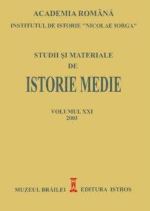Binecuvântarea şi blestemul părinţilor în discursul testamentar (Bucureşti, sfârşit de secol XVIII-început de secol XX). Studiu de caz.
The Parental Blessing and Curse in the Testamentary Discourse-Bucharest, at the End of Eighteenth Century and the Beginning of the Nineteenth Century
Author(s): Andreea IancuSubject(s): History
Published by: Institutul de Istorie Nicolae Iorga
Summary/Abstract: The present study deals with the analysis of language and rites as indicators of the relationships between the family members and also of the last will as a preparation ritual for death. The solemnity of the last will pronouncement, the performance of the will’s drafting, the link which the forgiveness establishes between the audience and the main actor of the ultimate departure representation, all of these made the will a prelude of the funeral. The blessing/curse pair takes up the meaning of spiritual inheritance/disinheritance projected into the future. In the last will the parental bless is often accompanied by the appointment of progeny. The blessing thus becomes the spiritual feature of the « gift » and protects both the given patrimony and the person who receives it. If the inheritance itself was meant to secure the material support of the successors’ future, this parental act of conferring « grace » to the patrimonial transfer was also a reflection of the vow between God and Abraham in order to guarantee the kin continuity.
Journal: Studii şi Materiale de Istorie Medie (SMIM)
- Issue Year: 2003
- Issue No: XXI
- Page Range: 57-70
- Page Count: 14
- Language: Romanian
- Content File-PDF

